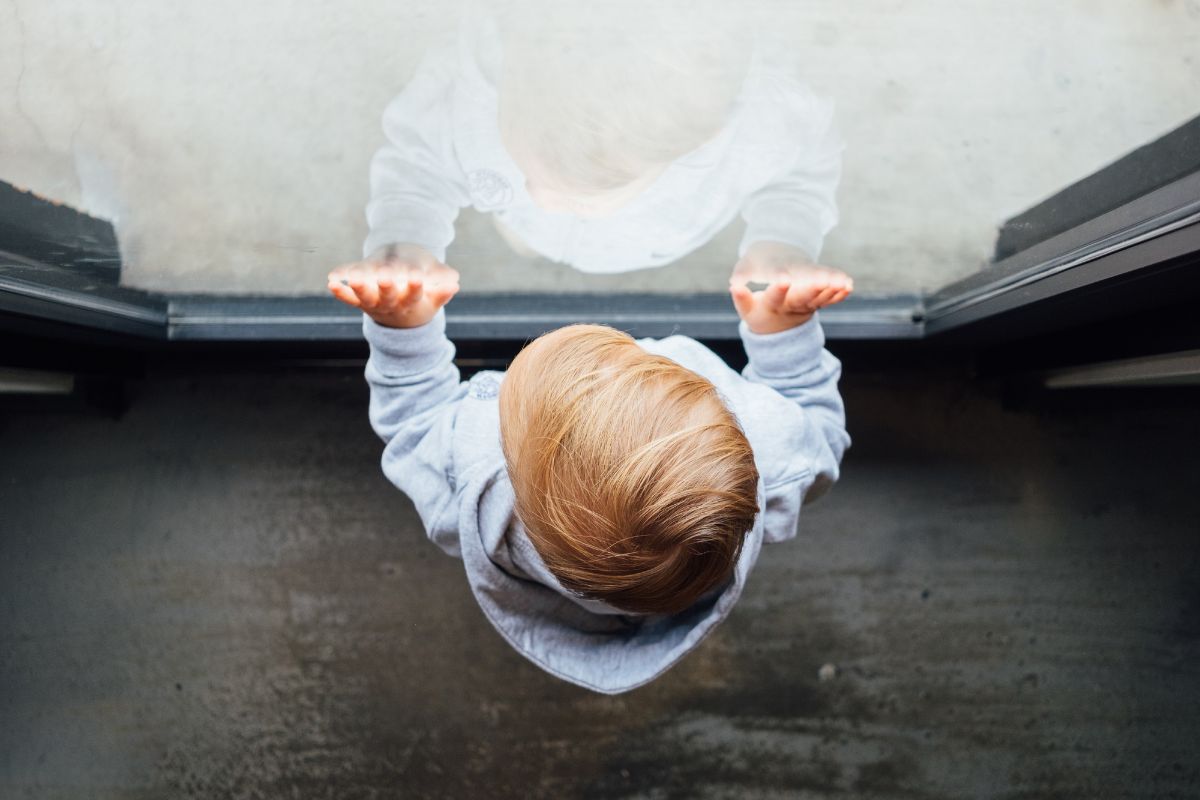The impact of domestic violence on children can be wide-reaching and serious, whether domestic violence is aimed directly at them or not. Considering the long-lasting effects, it’s vital to be able to recognise the signs of domestic violence on children and know how to support their safety.
According to data from the Australian Institute of Health and Wellbeing, one in six women and one in nine men experience physical and or sexual abuse before the age of 15. In Australia, one in four children are exposed domestic violence, either as direct victims or experiencing it in their homes.
Whether the violence is against their parent, another family member or themselves, research shows that the direct and indirect impacts of domestic and family violence on children can be serious. It affects their brain development, their relationships, their sense of the world as a safe place, and their ability to trust others close to them for the entirety of their lives. Children of all ages can experience emotional and physical trauma. They experience the same states of mind and emotions of their parents, and they are especially sensitive to fear, dread and terror.
Many children are also exposed to the child protection system when violence is reported or the police are called to their homes. While this ‘helping system’ can facilitate recovery from the trauma, in some instances it can worsen their distress and fears.
What are the impacts of domestic violence on children?
There are a number of ways children can be negatively impacted by domestic violence:
- Children can be harmed physically, during their mother’s pregnancy, or when a parent is assaulted while holding or protecting a child. Alternatively, they may be injured when trying to intervene to protect a parent. They may also be directly assaulted as a tactic to control their parent.
- Children can be harmed when they are experiencing family violence, when they hear violence or see the consequences of it (bruising, distress, damaged property). Children can also be impacted by the deteriorating health, wellbeing and parenting capacity of the parent who is the victim/survivor.
- Children may be included in the violence, such as being forced to spy on a parent or to participate in assaults.
- Children may feel, or be made to feel, responsible for the violence. This can be exacerbated when parents separate, and they feel responsible for the conflict that continues around them.
- Children may live in fear of violence, always hypervigilant, watching their parent to sense the mood of the house, to predict an escalation, or know if a parent has been drinking – which can be a contributor to a violent outburst or hours-long tirade.
- Children can also live in secrecy and shame, which affects their social world. They might not feel safe to bring a friend home from school or share what is happening with anyone outside the home. This can mean that they live in two worlds: The outside world, and the ‘real world’ of fear and confusion.
Recognising the behavioural signs of domestic violence in children
We know from extensive research that children can be impacted in the short-to-medium term with various behavioural and emotional problems, compared to other children who have not experienced violence. They are more likely to display heightened aggression, impulsiveness and anxiety, and have less contacts with peers and people outside the family.
The more serious concern long-term is the impact that violence has on the development of a child’s brain. Trauma in childhood can be especially harmful because it inhibits the child’s developing sense of self and their coping mechanisms. Children who live in a constant state of fear do not develop all the neural pathways other children do, which is why exposing children to violence is a form of child abuse.
Some children suffer the effects as post-traumatic stress disorder (PTSD). This kind of stress typically overwhelms a child’s coping abilities and may show up as extreme fear or helplessness. The child’s traumatic responses to the abuse from or of their parent are likely to be intensified if the person using violence is someone they know.
Every child who experiences family violence will respond in their own way, but there are some common behaviours and signs to look for.
Short-term signs of domestic violence in children:
-
Being dazed or confused
-
Regression, such as bed-wetting or thumb-sucking
-
Having specific fears or insecurities that weren’t there before
-
A preoccupation or frequent talk or play about a particular incident
-
Changes in emotions, such as withdrawal, sadness, irritability, anger, moodiness
-
Increased comfort-seeking or demanding behaviour
-
Separation concerns.
Medium to long-term signs of domestic violence in children:
-
A constant need for attention
-
Frequent fighting
-
Possessiveness of toys
-
Seeking out pain
-
Poorer school performance
- Poorer relationships with peers
- Stealing or lying
- Depression
These lists aren’t exhaustive, and even children within the same family can respond in different ways. Similarly, some children may seem to be doing okay despite their experiences.
It’s important to understand that however they present, children will always be impacted in some way by experiencing violence at home. What matters most to their ability to thrive in the longterm is the support they have around them.
Supporting children’s resilience in the face of violence
Overall, children who experience domestic violence are more likely to face emotional and relational challenges. But the small piece of good news is that most children who experience family violence will go on to thrive as adults.
While an individual child’s personal attributes play a role in how resilient they are to the impacts of domestic violence, we also know that having another supportive adult in the family plays a key role. This might be their protective parent (the parent who isn’t using violence); another family member like a grandparent, aunty or uncle; or someone in their social network outside the family – especially a reliable adult who is within walking distance.
If a child you know is experiencing family violence, you might not be able to stop the violence, but you can try to be a supportive, consistent person for them to turn to.
How to speak to a child impacted by domestic violence
As adults, we may try and protect children by not talking to them about their experiences with domestic violence. However, what we know is that children want and need to talk about what has happened to them.
Children who have experienced violence will often disclose small parts of their story over time, rather than talking about everything all at once. By being reliable and consistent, you can create a foundation for a child to talk to you as they start to feel ready and able.
How you have conversations with children will depend on their age and your relationship with them, but there are some good principles to remember:
- Make sure the child is in a safe place before raising your concerns with them
- Remain calm – they need to know that they can trust you to remain safe and predictable when they tell you things
- Don’t rush them to tell you more, let them go at their own pace
- If you need to take action, let them know your plans
- Don’t make promises you can’t keep.
Of course, there may be limits to speaking with a child openly about domestic violence. The person using violence may deliberately prevent the other parent or adult family members from helping or use psychological abuse to make the parent feel they are helpless in the situation.
Ultimately, the person using violence is responsible for the harm they are causing to their children. If you are a parent experiencing violence who is being prevented from helping your child, think about whether there are any other supportive adults around them that they may turn to.
Getting help for children experiencing domestic violence
If you believe that a child is at risk of significant harm, you may need to consider making a child protection report by calling the Child Protection Helpline on 132 111. If you aren’t the child’s parent or carer, tell the child’s protective parent before you make the report, if possible.
Services such as 1800 RESPECT can also provide support and advice to those who are experiencing domestic violence, including parents with children. In an emergency, always call 000.






